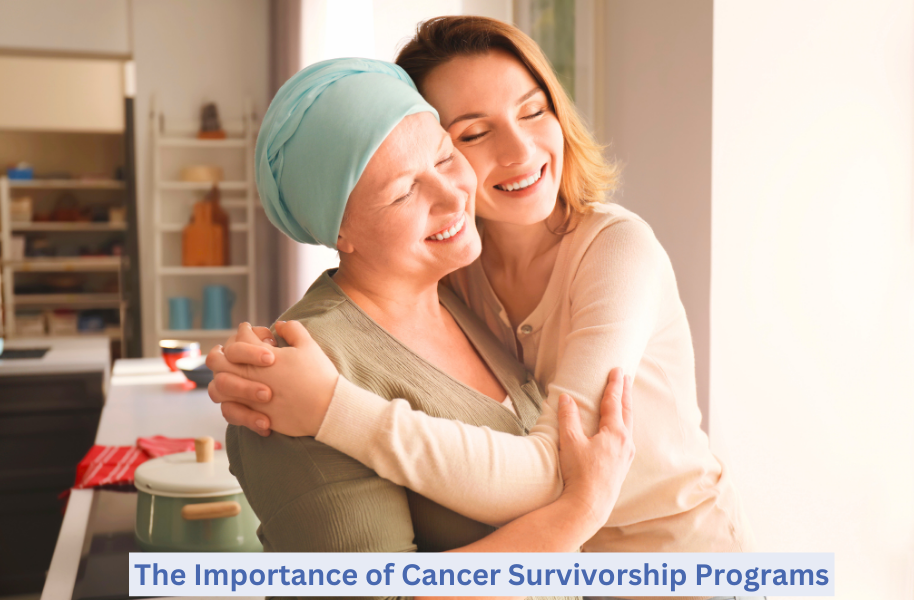BLOG
The Importance of Cancer Survivorship Programs

The Importance of Cancer Survivorship Programs
Cancer survivorship is a journey that begins the moment a patient is diagnosed with cancer and continues through the remainder of life. While the primary focus during cancer treatment is often on eradicating the disease, it is equally crucial to address the long-term health and well-being of cancer survivors. Cancer survivorship programs play a vital role in this aspect by providing comprehensive support that extends beyond medical treatment. These programs are essential for improving the quality of life for cancer survivors, addressing their unique needs, and helping them navigate the physical, emotional, and social challenges that follow a cancer diagnosis and treatment.
Understanding Cancer Survivorship
Cancer survivorship encompasses the physical, emotional, social, and economic aspects of a cancer patient's life after treatment. Survivors may face a myriad of issues, including the risk of recurrence, long-term side effects of treatment, emotional and psychological challenges, and the need for ongoing health maintenance. Recognizing and addressing these issues is critical for ensuring that survivors lead fulfilling and healthy lives post-treatment.
Key Components of Cancer Survivorship Programs
Medical Follow-up and Monitoring: Regular follow-up care is essential for monitoring the long-term effects of cancer treatment and detecting any signs of recurrence. Survivorship programs ensure that survivors receive routine screenings and assessments to manage their health proactively.
Psychological Support: The emotional impact of cancer can be profound, leading to anxiety, depression, and post-traumatic stress disorder (PTSD). Survivorship programs offer counseling and support groups to help survivors cope with these emotional challenges and provide a safe space for sharing experiences and feelings.
Rehabilitation Services: Cancer treatments can result in physical impairments and disabilities. Rehabilitation services, including physical therapy, occupational therapy, and speech therapy, are crucial for helping survivors regain strength, mobility, and functionality.
Health Promotion and Disease Prevention: Survivorship programs emphasize the importance of a healthy lifestyle, including proper nutrition, regular exercise, and smoking cessation. These programs educate survivors on ways to reduce the risk of secondary cancers and other health conditions.
Social and Financial Support: Cancer treatment often leads to significant financial strain and social isolation. Survivorship programs provide resources and support for navigating financial challenges, accessing social services, and rebuilding personal and professional relationships.
The Impact of Cancer Survivorship Programs
Cancer survivorship programs have a profound impact on the lives of survivors, their families, and the broader community. Here are some of the key benefits:
Improved Quality of Life: By addressing the physical, emotional, and social needs of survivors, these programs significantly enhance their overall quality of life. Survivors are better equipped to manage the long-term effects of cancer and lead fulfilling lives.
Reduced Health Disparities: Cancer survivorship programs help reduce health disparities by providing equitable access to care and support services. This is particularly important for underserved populations who may face barriers to healthcare.
Enhanced Patient Empowerment: Survivorship programs empower patients by providing them with knowledge and resources to take control of their health. Education on self-care practices and health maintenance fosters a sense of autonomy and confidence.
Decreased Healthcare Costs: By promoting proactive health management and early detection of recurrence, survivorship programs can help reduce the overall healthcare costs associated with cancer care. Preventive measures and timely interventions can prevent complications and hospitalizations.
Building Effective Cancer Survivorship Programs
To build effective cancer survivorship programs, healthcare providers and institutions must adopt a holistic and patient-centered approach. Here are some strategies for developing and implementing these programs:
Comprehensive Assessment: Conduct thorough assessments to identify the unique needs of each survivor. This includes evaluating physical health, emotional well-being, and social support systems.
Interdisciplinary Collaboration: Foster collaboration among healthcare professionals, including oncologists, primary care physicians, psychologists, social workers, and rehabilitation specialists. A multidisciplinary approach ensures that all aspects of survivorship are addressed.
Personalized Care Plans: Develop individualized care plans tailored to the specific needs and preferences of each survivor. These plans should outline follow-up care, rehabilitation services, psychological support, and health promotion activities.
Community Engagement: Engage with community organizations and support groups to extend the reach of survivorship programs. Community resources can provide additional support and create a network of care for survivors.
Ongoing Evaluation: Continuously evaluate the effectiveness of survivorship programs through feedback from survivors and healthcare providers. Use this data to make necessary adjustments and improvements to the programs.
Conclusion
Cancer survivorship programs are essential for supporting the long-term health and well-being of cancer survivors. By addressing the multifaceted needs of survivors, these programs not only improve their quality of life but also empower them to lead healthy and fulfilling lives. As the number of cancer survivors continues to grow, the importance of comprehensive survivorship programs becomes increasingly evident. Healthcare providers and institutions must prioritize the development and implementation of these programs to ensure that every survivor receives the care and support they need on their journey beyond cancer.More

